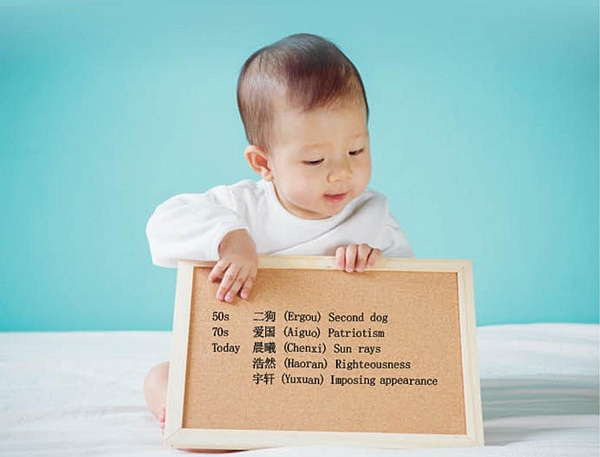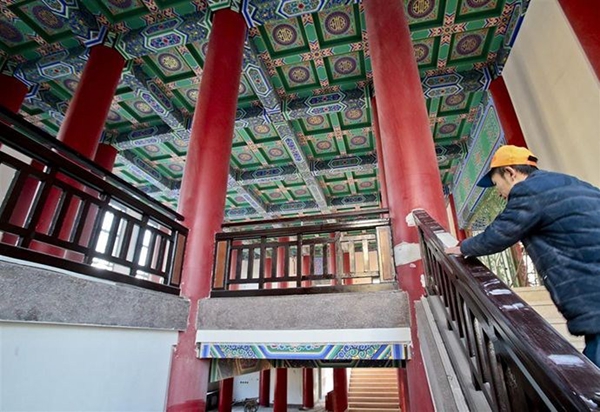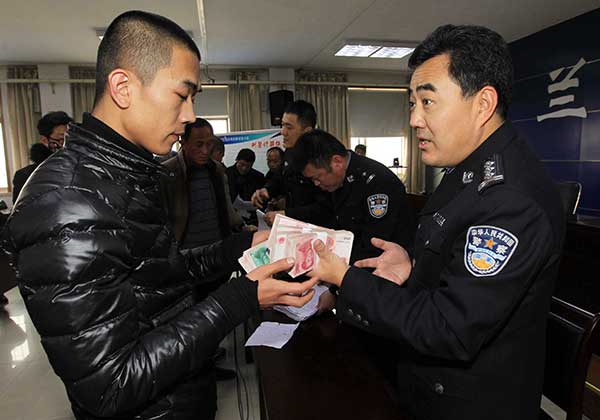|

|
|
Names reflect a nation’s changing cultural trend. [Shanghai Daily]
|
New-born babies bring joy, of course, but also troubles with how to name them. Names matter, Chinese agree, and that is why parents go to great lengths to devise auspicious and fitting names for their children.
“It is better to teach your children a craft, than to give them a thousand pieces of gold; it is better to give them a good name than to teach them a craft,” said an advertisement for 99qumingzi.com, a popular website providing naming services for new parents.
Decades ago, Chinese parents cared less about names.
“Probably because their parents did not go to school, some used numeral or ‘dog’ as given names,” says Hu Weining, head of household registration in the Honggutan New District of Nanchang, capital of eastern China’s Jiangxi Province. Her team, part of the city police, deals with registration documents for new babies, and she has worked there for 20 years.
She says that in the last two decades better-educated parents have started to care about names and even pay for names for their children.
According to Chinese custom, names that have been used by elder people in the family cannot be used for babies. Young parent do not like their children to share their names with others.
“Uniqueness is the new standard. Many people use complex Chinese characters to differentiate from others,” Hu says.
Trying to avoid repeating someone else’s name is a difficult task. Since January 1, 2016, China relaxed its one-child policy to allow all married couples to have two children.
Last year, millions of babies were born, and how to name them became a sweet headache.
“It can’t be tacky, or strange. It should sound nice, but first and foremost it must be different from others,” says Wang Chunhua, a 30-year-old mother who gave birth to a boy in November last year. Her older daughter is seven.
Wang spent weeks going through Chinese dictionaries, looking for a proper and nice enough name for her son. She consulted with her husband and her relatives, and asked them to vote. Finally, she said: “Let’s name him Yuxuan (having an imposing appearance), nice meaning, and not common around me.”
As it turns out, according to a December report by Qimingtong, a naming service company, in cooperation with Tsinghua University, Yuxuan is a common name. It ranked fourth as the most common names for boys in 2015, according to the report based on the data of 5.4 million babies born that year.
New trend
“Names reflect a nation’s changing cultural trend,” Hu says.
Thirty years ago, babies were given names like Wei (greatness), Aiguo (patriotism) or Xiuli (gently beautiful), now Chenxi (sun rays) and Haoran (righteousness) are more popular.
In 2015, 4,034 new babies were born in Honggutan, where Hu works. From January to November 2016, there were 4,695 newborns, up 16.38 percent year on year.
Some police districts in China have developed computer systems for registrants to search whether a name has been used and by how many people. Hu’s department does not offer such services, but she gives her advice.
“I have repeatedly told parents not to use extremely uncommon characters. Such names are unscannable in banking or social security systems,” she says.
Zhang Ruxin, who led the report on names, says people used to have only one Chinese character as a given name, but two-character names were now preferred, mainly to avoid duplicates.
According to the report, 299,025 people, about the population of Iceland, are called Zhang (surname) Wei (given name), the most-used name. The second-ranking Wang Wei is shared by 290,619 people.
Younger parents are more influenced by pop culture, including romance novels and popular TV series. Zixuan, a name which probably has roots in heroines and heroes of TV series, is remarkably overused. It comes in different Chinese characters.
“My boy Zixuan was admitted to the hospital, and there happened to be four Zixuans in the same ward,” a mother said.
In Tibet Autonomous Region, repetition of names is also being shunned. Doje Drolma, a college student from Tibet, said several of her friends had longer names, like Tenzingendenlesh.
In Tibet, babies are often named by high monks, living-Buddhas or the elderly in their families.
Good business
With the second-child boom, business has been good for naming services companies. Duan Lingang, 58, a self-professed name expert based in Jiangxi, founded his business five years ago.
“Back then, there were no orders for months,” he says.
Duan improved his proficiency after learning from a master in “I Ching,” or “Book of Changes,” in Beijing. He charges 600 yuan (US$92) for a name, and writes up to 24 options for parents to select from.
“My reputation spreads through word of mouth. Now I get two to three orders every week,” he says.
Duan calculates the baby’s five elements — metal, wood, water, fire and earth — from the date and time of birth, before giving names accordingly.
“A baby’s name can make up for the element he or she lacks from birth, bringing good fortune,” he says.
Names matter so much that Chinese parents are not settled with buying only Chinese names; they are also buying English names.
Beau Rose Jessup, from Britain, established the website Specialname.cn to give new Chinese babies English names. The website claims it has given names to 295,379 babies.
“The English name you give your children will change their future,” the website proclaims.


